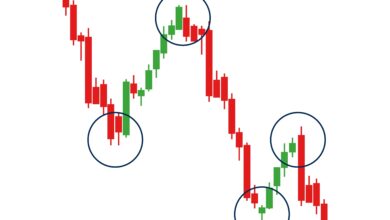
7 Disadvantages of Full-Time Forex Trading: Understanding the Challenges
Introduction:
Disadvantages of Full-Time Forex Trading, Forex trading has gained popularity as a potentially lucrative career path, offering individuals the flexibility to trade currencies full-time. While the allure of financial independence and freedom is enticing, it is crucial to consider the potential disadvantages of pursuing full-time forex trading. In this article, we will explore seven challenges faced by full-time forex traders, shedding light on the realities of this profession
1. High Emotional Stress:
Disadvantages of Full-Time Forex Trading, Full-time forex trading can subject traders to high levels of emotional stress. The constant pressure to make profitable trades, coupled with the financial implications of every decision, can lead to anxiety, frustration, and emotional exhaustion. Managing emotions and maintaining discipline become critical for long-term success.
2. Unpredictable Income:
Unlike traditional salaried jobs, full-time forex trading does not guarantee a consistent monthly income. Market volatility and fluctuations can result in unpredictable trading outcomes, leading to inconsistent earnings. Traders must have proper risk management strategies and financial reserves to withstand periods of losses or unforeseen market conditions.
3. Financial Risk:
Forex trading involves substantial financial risk. Traders can experience significant losses, especially when using high leverage or improper risk management techniques. It is crucial to have a thorough understanding of risk management principles and implement them consistently to protect capital.
4. Isolation and Loneliness:
Full-time forex traders often work in isolation, spending long hours analyzing charts and executing trades. The lack of social interaction and camaraderie found in traditional work environments can lead to feelings of loneliness and isolation. Traders must proactively seek support from trading communities or engage in networking activities to mitigate this drawback.
5. Reliance on Market Volatility:
Forex markets are driven by volatility, and periods of low volatility can pose challenges for full-time traders. When markets are calm and price movements are limited, it becomes difficult to identify profitable opportunities. Traders may experience extended periods of inactivity or reduced trading opportunities, affecting their ability to generate income.
6. Constant Learning and Adaptability:
Forex markets are dynamic, influenced by a multitude of factors such as economic indicators, geopolitical events, and central bank policies. Full-time traders must stay updated with market news, economic releases, and global developments. Continuous learning and adaptability are essential to stay ahead in this ever-changing landscape.
7. Time Commitment and Work-Life Balance:
Full-time forex trading demands a significant time commitment. Traders often spend long hours monitoring the markets, analyzing charts, and executing trades. This can disrupt work-life balance, leading to strained personal relationships and limited leisure time. Maintaining a healthy balance between work and personal life becomes crucial to avoid burnout.
Conclusion:
While full-time forex trading can offer financial freedom and independence, it is essential to recognize the potential disadvantages and challenges associated with this career path. Emotional stress, unpredictable income, financial risk, isolation, reliance on market volatility, constant learning, and time commitment are key aspects that full-time traders must navigate. It is crucial to approach forex trading with a realistic understanding of these challenges, coupled with a comprehensive trading plan, effective risk management strategies, and a commitment to ongoing education. By acknowledging and proactively addressing these disadvantages, individuals can make informed decisions and increase their chances of success in the demanding world of full-time forex trading.





